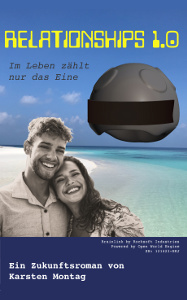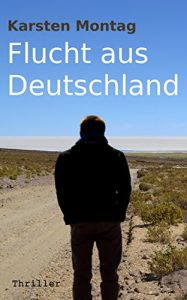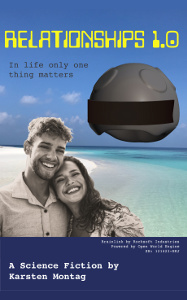We spent three months in Greece during the winter of 2011/12 (December to February) with a camper car and we like to share the experiences we made. Actually, we like to motivate others to hibernate in Greece, because we liked the places and the people very much. We made quite a few friendships with Greek people and other campers from Germany, England, Austria and France.
Weather
Climate
In winter there are mainly two types of regional climate situations depending on the direction of the wind. If it comes from the north, the weather is clear and dry but cold. During the day the sun can heat up the air by 20 degrees. During the night it can be freezing.
If the wind blows from the south, the air is warmer but more humid. The temperature doesn’t fall below zero in the night, but, because of the clouds, it won’t get much warmer than 10 degrees in the day. Usually, there is not much rain compared to the weather in northern Europe.
If there is a low pressure area coming from the large-scale weather, than there could be storms and heavy rain for days. During our stay in Greece we experienced such a weather situation trice: in the beginning and in the end of December and at the end of February.
Temperatures
As long as you stay next to the shore, there is hardly any frost in winter. The Mediterranean Sea works like a big climate balancer. In the winter the water doesn’t get colder than 15 degrees. If you go inland, it can be constantly freezing, especially in the mountains. Usually, there is snow in regions higher than 800 meters. So, if you are escaping the winter in northern Europe, it is a good idea to enjoy the mountain view from a beach in the sun. The lowest temperature we experienced on a beach in southeast Peloponnese was minus 1 degree during the night and about plus 6 degrees in the day. According to the Greek people we met, we had a strong and cold winter in 2011/12.
Regional differences
There are more storms and rain on the west coast of Greece than in the Aegean Sea. The average difference in temperature between the southern parts of Peloponnese and Thessaloniki in the north is 5 degrees. So, the best places to stay in winter are the southeast parts of Peloponnese and the southern Aegean islands.
How to get there
The easiest way is to go via Italy and then take a ferry from Ancona, Bari or Brindisi to Igoumenitsa or Patras. If you are more the adventurous type, go down the coast of Slovenia, Croatia, Montenegro and Albania. There is no problem to go in and out of Albania, but going through Albania. Though they are building new roads everywhere, the transit routes still have some very bad parts. Anyway, it is safe to explore the country. Albania is still very poor compared to industrialized countries, but it is experiencing an economical improvement the recent years and the people are friendly to foreigners.
Sleeping in the motorhome
Sleeping on the road is forbidden in Greece as well as in whole Europe except of Scandinavia. But the Greek people are very tolerant. We haven’t had one single bad experience during our whole stay. We heard and read about problems other people had, but, maybe because we travelled in winter, the sleeping situation was very relaxed and safe. Sometimes local Greeks warned us, that the places we were staying were not safe because of Albanians or illegal Pakistani. But all foreigners we met in Greece, including the illegals, were nice people.
We made a list of the places, where we stayed at under “Tipps für Reisende -> Stellplätze”.
People
The main reason to spend holidays in Greece is not the weather, the ancient history or the nice Mediterranean Sea, but the Greek people themselves. You will hardly find another country with more hospitality like Greece. The Greeks celebrate their freedom and their relaxed style, especially in the countryside, which means, all places apart from Athens. In most places we visited we had a camp fire on the beach. But this is only allowed in winter times.
Language
Greek is hard to learn, because it is so different from Latin or Germanic derived languages. Even simple words sound very strange. “Nä” means “Yes” and “Ja” is the short form of “Jassas” which means “Hello”. “Ochi” (No) sometimes sounds like “Okay”, but the Greek word for that is “Endaxi”.
If you can remember the ancient Greek letters from physics in school like alpha, beta gamma for describing the ray intensity, lambda for the wave length or pi for the number of the circle, you have the advantage to read Greek signs. If not, you depend on signs written in Latin letters. Actually, every main road has signs in Greek and Latin letters.
Many Greek people speak English. In the province of Epirus in the northwest of Greece there are a lot of people who speak German, because they have worked in Germany. Sometimes it’s funny to get an answer in perfect German without any accent after you have asked a question in very broken Greek. These mainly young men and women are the children of the people who worked in Germany. They went to school there and returned with them back to Greece.
Supplies
With a camper car you have special needs: water, emptying toilets, gas for heating and cooking, washing clothes.
Water
There is no problem to get fresh water. Almost every beach, marina or harbor provides free public water supply. If you are travelling inland you can get water at fuel stations, cemeteries and public wells.
Toilets
Emptying toilets is more difficult. Because there are no public camper service stations at all, you should better bring a shovel, don’t use chemicals and bury your shit quietly. This makes you independent from camping sites, which are mainly closed in winter. Harbors and marinas usually have public toilets, where you can leave your leftovers as well.
Gas
Getting gas is another problem. You can get Greek gas bottles everywhere, but the connection is different and you can’t give the bottle back. You can only exchange an empty bottle with a full one. So, you have to buy a bottle and you need an adaptor, which can easily be ordered over the internet.
There are a few bottle-refilling stations in Greece, where you can get propane for your bottles. You can find one next to Lamia (38.808764,22.511795). We heard of another one in Kalamata. We don’t know if you have to bring your own adaptor.
There is another and (we think) easier solution: Because our camper car ran on autogas (LPG, GPL), we had to find autogas fuel stations. These are hard to find, because autogas is not very popular in Greece. But once you know where they are, you can refill your bottle as often as you want. The only tool you need is an adaptor from dish (this is the name of the autogas-connection in Greece) to your bottle connection, which you can get on ebay for example. The station attendant will fill your bottle with it, even if it is not allowed. Please notice, that an 11 kg-bottle contains 27 liters of gas and a 5 kg-bottle 12 liters.
And there is another thing you should know: gas bottles usually contain propane, but autogas is a mixture of propane and butane. Butane is a bit heavier than propane, and when the propane is burned, only a few liters of butane are left in the bottle. The pressure of butane is lower than that of propane, so you can run a fridge with it but no heating or cooker. We usually poured the remaining one or two liters of butane out before refilling the bottle.
You can find a list of autogas-stations under “LPG / Autogas-Tankstellen in Griechenland”.
Washing
We had no problem to wash our clothes at the few camping sites that are open during the winter. The owners took about 5 euros per washing machine filling and we didn’t have to stay for the night. After the machine had finished we took the wet clothes with us and dried them in the sun.
Washing your clothes in the hot creek of Thermopile’s is another good idea. They smell a bit like sulfur afterwards, but we got used to it.
Electricity
If you don’t have a solar panel on your roof, get one. 100 Watts are sufficient. We had a 50 Watts-panel and it was a little too less. It’s a good idea, if you can change the pitch of the panels, because thus they are more efficient.
Cats and dogs
There are a lot of stray cats and dogs all over Greece, especially on the beaches, at the archeological sites and in the cities. Usually they are very calm and friendly. Though they have no special owners they are fed by the locals. If you can’t resist their begging and you start to feed them, be aware that they will stay around your car the whole day and night and that they will defend the place against other animals. If they get too annoying, just don’t feed them. Clapping your hands against them will normally chase them away.
If you bring your own dogs from home, there is no problem to let them run around freely. The only paranoid dogs we met were chain dogs and some single stray dogs in the cities.
When locals want to give away puppies, they put them next to camper cars in the hope that the tourists will take them. We went into that trap and adopted an abandoned puppy from a beach and took it with us. To take dogs back to your home country is quite easy. They need a chip under their skin, a vaccination, a passport and a health certificate. All this you can get from a veterinarian for less than 100 Euros. For Norway and Sweden you need an additional blood test. Cats just need a vaccination and a health certificate.
Sightseeing
Beside the weather and the beautiful country sites the main attractions in Greece are the archeological excavation sites and museums. Ancient places that are worth visiting are:
- Ancient Olympia
- The theatre of Epidaurus
- The Acropolis, the Agora and the National Archeological Museum in Athens (to stay there overnight, there is a parking space directly in front of the Acropolis next to a restaurant called „Dionysos“: 37.969398,23.722807
- The castle of Mystras (actually this is from the Byzantine times) next to Sparta
- Akrocorinth and Ancient Corinth
- Delphi
- Mycenae
Most of these sites offer free entrance on almost all Sundays in winter.
Other nice destinations are:






